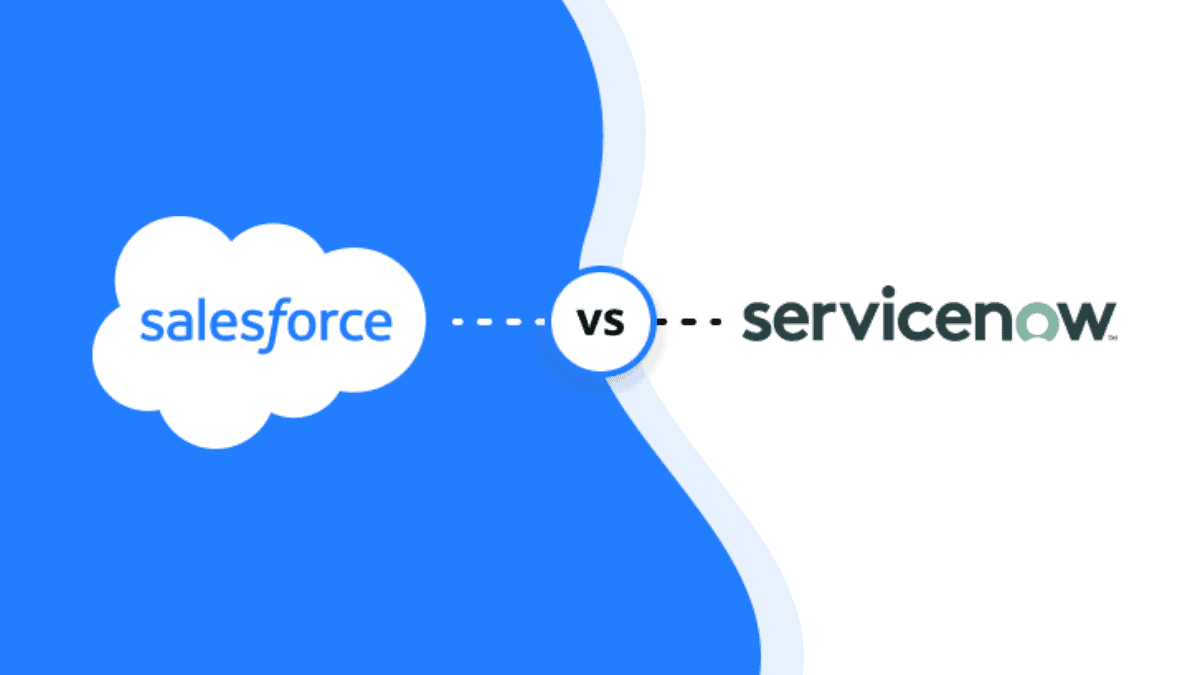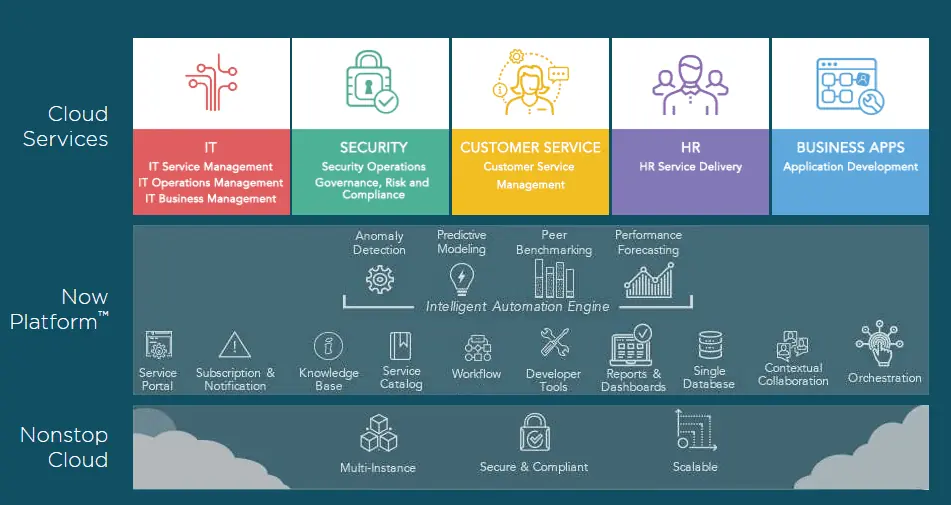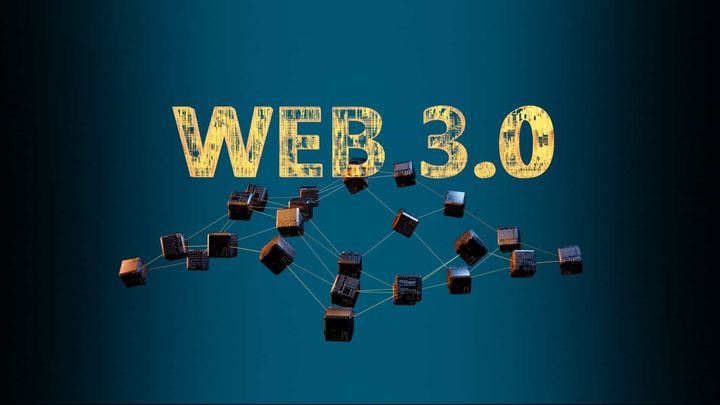Salesforce or ServiceNow: What’s the Better Choice?
Find out which customer service tool is best for your business - Salesforce or ServiceNow? Discover the pros and cons of each platform in this comprehensive comparison guide.

Salesforce and ServiceNow are two of the most popular customer service platforms on the market today. Before you make a decision, it's important to weigh up the pros and cons of each option to see which platform will best satisfy your customer service needs. This guide provides an in-depth comparison of Salesforce and ServiceNow capabilities and features.
Salesforce and ServiceNow are leading CRM platforms but have different strengths and are suited for various organizations. Salesforce is best for large organizations with multiple departments that have a laser focus on sales and marketing. It offers a broader and deeper CRM and sales management feature set compared to ServiceNow. On the other hand, ServiceNow is preferred for those organizations that handle sensitive data for ticketing and prioritization queues. It is a top player in information technology service management (ITSM) and manages the functions needed to make enterprise IT work.
According to Gartner Peer Insights, both Salesforce and ServiceNow have high user ratings. However, it's important to note that the ratings may not be directly comparable since they are based on different numbers of reviews. Ultimately, the choice between Salesforce and ServiceNow depends on an organization's needs. Therefore, organizations should carefully consider their priorities, such as whether they need a platform focused on sales and marketing or IT service management, before deciding.
Overview of Salesforce and ServiceNow
Salesforce and ServiceNow are both powerful customer service platforms. They offer a comprehensive set of features, from automation to reporting to self-service capabilities. However, their approaches to customer service are different. Salesforce emphasizes customization and scalability for larger enterprises, while ServiceNow focuses on ease of use for small and midsize businesses. Each platform has its own strengths and weaknesses that need to be taken into account when deciding which is the right tool for your business.
Salesforce is a comprehensive customer service platform with sophisticated customization capabilities. It offers a variety of integrated tools for marketing automation, customer analytics, and customer relationship management (CRM). Additionally, Salesforce enables businesses to build custom applications for their specific needs. As a result, large enterprises tend to favor Salesforce due to its flexibility and scalability. ServiceNow on the other hand prioritizes ease of use, which makes it attractive to small businesses just getting started with customer service technology. It includes a range of powerful pre-configured solutions that can be up and running quickly without any in-depth customization -- though that isn’t necessarily available if needed. With its intuitive user experience design and robust search capabilities, ServiceNow is designed with quick access to actionable insights in mind.

Core Difference
Salesforce and ServiceNow are cloud-based customer service engines providing various service levels. The significant difference between Salesforce and ServiceNow is that it is a fully operational CRM system, while ServiceNow focuses on IT back-end operations management. As a result, Salesforce enables organizations to deliver faster and more reliable resolutions, whereas ServiceNow allows businesses to address customer requirements quickly and proactively. Salesforce's job is managing and handling all aspects of the relationship between an enterprise and its customers, such as customer contact details, customer deals, customers support requests, etc.
On the other hand, ServiceNow helps customer service and helpdesk teams manage their communication with clients and their requests. When deciding between Salesforce vs. ServiceNow, companies must consider their business needs. Both systems are excellent in their support and services. However, companies should concentrate on providing the best possible customer experiences to expand their market share and ROI.
The core difference between Salesforce vs. ServiceNow is that Salesforce is a fully operational CRM system that manages all aspects of the relationship between an enterprise and its customers. In contrast, ServiceNow focuses on IT back-end operations management to help customer service teams manage client communication. As a result, companies should choose between these two systems based on their business needs.

Comparing CRM Features in Salesforce and ServiceNow
When it comes to customer relationship management (CRM), Salesforce and ServiceNow both offer a robust feature set. In Salesforce, users can customize campaigns and view detailed customer insights; while in ServiceNow, they can track customer interactions over time as well as create personalized workflows. Additionally, Salesforce offers easy integration with other products such as social media channels and email software. On the other hand, ServiceNow is better for service management tasks like problem resolution and issue tracking.
While both platforms offer strong features, they each have their own strengths and weaknesses. Salesforce is geared more towards sales teams, making it great for managing customer interactions and recording customer data. Meanwhile, ServiceNow is better suited to help desk administrators and customer service teams who need an effective way to track and monitor customer issues. Where ServiceNow excels over Salesforce is its ability to automatically route tickets based on criteria such as urgency or severity level; however, Salesforce does provide more specialized reporting options for management teams. Ultimately, which platform you choose depends on your specific needs and the goals of your team.
Comparing Customer Support Tools in Salesforce and ServiceNow
Both Salesforce and ServiceNow offer comprehensive customer support tools to help businesses manage customer inquiries. In Salesforce, users can utilize automation rules to quickly respond to customer queries and assign them to the right service personnel. ServiceNow customers can use automated workflows and custom forms to provide exceptional customer experiences in the most efficient way possible. Furthermore, both systems offer feedback tools so users can gain insights into customer sentiment in order to make improvements where necessary.
Salesforce and ServiceNow also offer customer support dashboards that allow users to track each customer's case status. In Salesforce, the dashboard allows users to organize cases into categories, access insights into trending topics, and resolve common inquiries quickly. ServiceNow's customer support interface lets customers filter cases by custom fields and gain insight into how each case is being handled. Additionally, both systems have mobile applications that enable customers to provide support from any location. With these mobile applications, businesses can ensure that their staff are available whenever an issue arises and are able to provide the best service possible.
Costs and Pricing Considerations between Salesforce and ServiceNow
It's important to weigh the costs of each platform when deciding which one is right for your business. Salesforce’s pricing model is based on the number of users, while ServiceNow offers various subscription plans that include a variety of tools depending on user needs. Furthermore, Salesforce has additional fees for their Professional and Enterprise plans, whereas ServiceNow provides access to all features regardless of plan level. Deciding between either platform should also consider any potential add-ons needed to facilitate user workflows.
Salesforce requires tailored implementations to fully leverage the power of its enterprise solutions, and such customization will cost significantly more. ServiceNow provides customers a la carte solutions to fill gaps in requirements that can be implemented quickly and deliver immediate value. Furthermore, many users have reported ServiceNow’s customer service and support to be superior to Salesforce’s. A successful implementation of either product should include thorough research into the costs associated with purchasing, support, and training along with an analysis of any potential add-ons that could enhance user workflows. Ultimately, this assessment is the first step in determining which platform best suits the needs of your business.
Technical Specifications Compared Between Salesforce and ServiceNow
When it comes to technical specifications, both Salesforce and ServiceNow have service capabilities tailored to customer success. Salesforce offers a suite of cloud-based business applications, including CRM and analytics platforms. ServiceNow provides users with a unified platform for enterprise applications, from IT service management to customer service automation. Both companies offer integrations with industry-leading mobile apps such as Slack and Microsoft Teams. In addition, users can customize their dashboards in both Salesforce and ServiceNow.
Salesforce offers a range of features for customer support and problem management, such as ticketing tracking, automated notifications, and asset management. ServiceNow provides service desk solutions that are designed to enhance customer experience through automation capabilities such as process definition, task assignment, and incident resolution. Salesforce is focused on mobile-first collaboration while ServiceNow enables users to build integrated applications tailored to the needs of their business. Whether the current IT landscape consists of legacy systems or a new cloud-based system, both organizations offer collaborative solutions that can meet any organization's specific requirements.
Pros & Cons
Salesforce and ServiceNow are both cloud-based software platforms that offer a range of services for businesses, but they differ in their focus areas and target customers. Some of the pros and cons of each platform are outlined below:
Salesforce
Pros
- Customizable: Salesforce is highly customizable, allowing users to tailor their experience to meet their business needs.
- Scalable: It can quickly scale to accommodate the growth of businesses of all sizes.
- Integration: It has various integrations with third-party applications, including marketing automation, analytics, and customer service tools.
- Wide range of functionalities: Salesforce offers a broad range of functionalities, including sales, marketing, customer service, and analytics.
Cons
- Cost: It can be expensive for small businesses, and the pricing model can be complex.
- Complexity: The platform can be complex, and the learning curve can be steep for new users.
- Limited IT service management functionalities: Salesforce does not have the same depth of IT service management functionalities as ServiceNow.
ServiceNow
Pros
- IT Service Management: ServiceNow is designed for IT service management, making it an ideal choice for IT departments.
- Ease of Use: ServiceNow has a user-friendly interface that makes it easy for new users to navigate.
- Workflow Automation: It offers powerful workflow automation capabilities to help businesses streamline their processes and improve efficiency.
- Integration: ServiceNow integrates seamlessly with other systems, allowing businesses to build custom workflows and automate processes.
Cons
- Limited functionalities: ServiceNow primarily focuses on IT service management and may not be as suitable for businesses looking for a more comprehensive solution.
- Cost: It can be expensive for smaller businesses, and the pricing model can be complex.
- Customization limitations: ServiceNow has some customization limitations compared to Salesforce.
The choice between Salesforce and ServiceNow depends on your business needs and priorities. For example, if you want a more comprehensive solution with a broad range of functionalities, Salesforce may be the better choice. On the other hand, if your focus is on IT service management and workflow automation, ServiceNow may be the better option.
Salesforce Module
Salesforce offers a range of modules or products that can be used to manage different aspects of a business. Some of the most commonly used Salesforce modules:
- Sales Cloud: This module is designed to help businesses manage their sales processes. It includes lead and opportunity management, sales forecasting, and collaboration tools.
- Service Cloud: This module is designed for customer service and support. It includes case management, knowledge management, and social media integration features.
- Marketing Cloud: This module is designed for marketing automation and email marketing. It includes email campaign management, leads nurturing, and social media advertising.
- Commerce Cloud: This module is designed for online commerce and includes features like order management, product catalog management, and customer service tools.
- Community Cloud: This module is designed for building online communities, both internal and external, to connect customers, partners, and employees.
- Analytics Cloud: This module is designed for data analysis and reporting. It includes features such as data visualization, dashboards, and predictive analytics.
- App Cloud: This module is designed for building and deploying custom applications on the Salesforce platform. It includes tools for building, testing, and deploying custom applications.
- Health Cloud: This module is designed specifically for the healthcare industry and includes features such as patient management, care plan management, and health analytics.
- Financial Services Cloud: This module is designed for the financial services industry and includes client management, financial planning, and regulatory compliance features.
Salesforce's modules are designed to help businesses manage different aspects of their operations and provide a comprehensive, integrated solution for managing customer relationships and business processes.
ServiceNow Module
ServiceNow offers a range of modules or products that can be used to manage different aspects of a business. Some of the most commonly used ServiceNow modules:
- IT Service Management (ITSM): This module is designed for managing IT services and includes incident management, problem management, change management, and service request management.
- IT Operations Management (ITOM): This module is designed to manage IT infrastructure and includes network monitoring, event management, and discovery and mapping features.
- IT Business Management (ITBM): This module is designed for managing IT projects and includes project and portfolio management, agile development, and financial management.
- Customer Service Management (CSM): This module is designed to manage customer service and support and includes case management, self-service portals, and customer feedback management.
- Human Resources Service Management (HRSM): This module is designed to manage HR processes and includes employee onboarding, performance management, and case management features.
- Security Operations (SecOps): This module is designed for managing security incidents and includes features such as threat intelligence, vulnerability management, and security incident response.
- Governance, Risk, and Compliance (GRC): This module is designed for managing compliance and includes risk management, policy and compliance management, and audit management.
ServiceNow's modules are designed to help businesses manage different aspects of their operations and provide a comprehensive, integrated solution for managing business processes. These modules allow businesses to streamline their operations, improve collaboration, and provide better customer service.

Automated Testing Framework (ATF)
ServiceNow ATF (Automated Test Framework) is a module in ServiceNow that allows users to automate the testing of their ServiceNow instance. With ATF, users can create, run, and manage automated test cases, which can help to improve the quality and reliability of their ServiceNow applications and processes.
Key ATF features of ServiceNow include:
- Easy to use: ServiceNow ATF has a user-friendly interface that makes creating and managing automated test cases easy.
- Integration with ServiceNow: ATF is fully integrated with the ServiceNow platform, allowing users to test customizations and configurations in their instances.
- Cross-application testing: ATF can test multiple applications in ServiceNow, including ITSM, CSM, and HRSM.
- Test data management: Users can easily manage test data for their automated test cases, including importing and exporting test data.
- Test result tracking: ATF provides real-time results and detailed reporting of automated test cases, allowing users to identify issues and make improvements quickly.
ServiceNow ATF can help to reduce the time and effort required for manual testing, improve the quality of ServiceNow applications and processes, and increase the efficiency of testing and development teams.
Salesforce DOES NOT have an ATF (Automated Test Framework) module equivalent to ServiceNow's ATF. However, Salesforce does offer a range of tools and features for testing and quality assurance, such as:
- Apex Test Framework: Salesforce has a built-in testing framework called Apex Test Framework, which allows developers to write unit tests for their Apex code.
- Lightning Test Service: Salesforce Lightning components can be tested using the Lightning Test Service, a lightweight framework for client-side testing.
- Selenium WebDriver: Selenium WebDriver can automate the testing of Salesforce web applications.
- Third-party testing tools: Salesforce can be integrated with various third-party testing tools, including TestComplete, QTP, and JMeter.
While Salesforce does not have an ATF module, it offers a range of testing and quality assurance tools and features that can help businesses to improve the quality and reliability of their Salesforce applications and processes.
We are here to help you
ExterNetworks provides analysis, design, consulting, development, and automated testing services for Salesforce and ServiceNow platforms. We have expertise in both platforms and provide comprehensive solutions to help businesses manage different aspects of their operations. We offer services such as IT service management, customer service management, sales, marketing, human resource management, and analytics, among others.
Our consulting services involve:
- A thorough analysis of the client's business requirements.
- Mapping the processes.
- Developing a roadmap for implementing the platform.
We provide customizations and integrations with third-party applications. In addition, we offer development services, which involve building custom applications and workflows to meet the client's specific business needs.
Automated testing services are also a part of our service offerings. With ServiceNow ATF and other third-party testing tools for Salesforce, we can ensure that the implemented solutions are functioning correctly and there are no bugs or errors. We offer comprehensive testing solutions that can save time and resources, improve productivity and efficiency, and increase the quality and reliability of the applications.
Our comprehensive suite of services for businesses helps manage operations and improve efficiency and productivity. In addition, our expertise in Salesforce and ServiceNow platforms can help businesses to achieve their goals and grow their business.
Our professional services team of CRM and ERP advisors can help you through your next big project.





